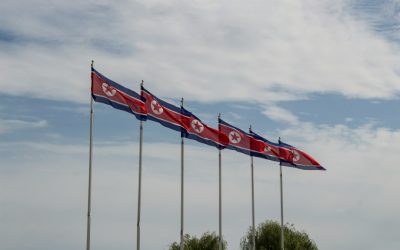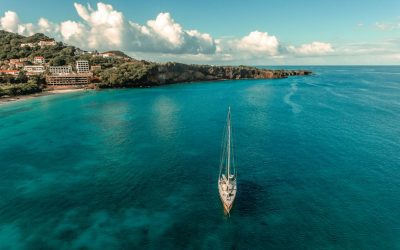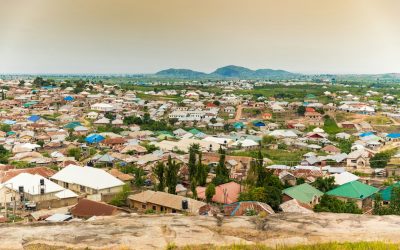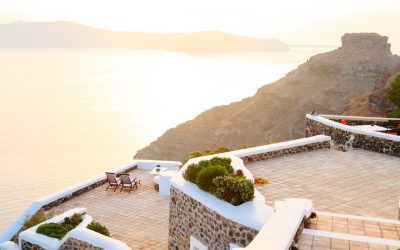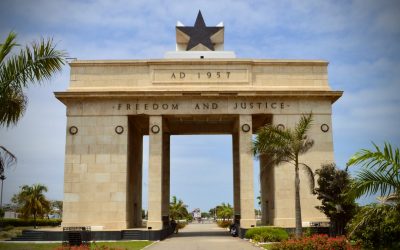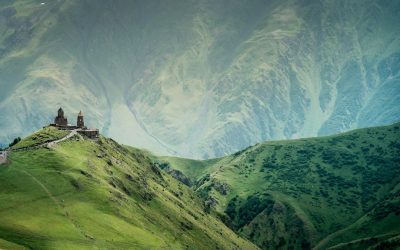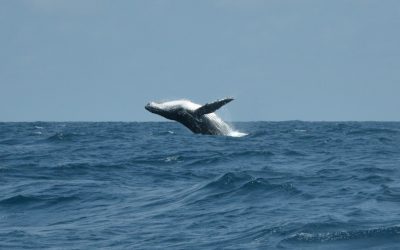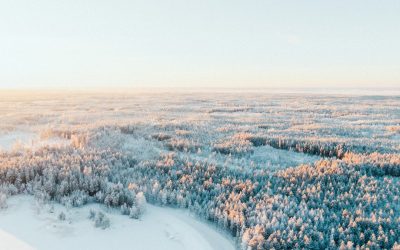World Geography
Geography is the study of the Earth’s landscapes, environments, and the relationships between people and their surroundings. It encompasses both the physical aspects of the Earth, such as its landforms, bodies of water, and climate, as well as the human aspects, including population distribution, cultures, and economies. World geography is a broad field that seeks to understand the complexities of our planet and how humans interact with it. By studying world geography, we can gain a deeper appreciation for the diversity of our planet and the interconnectedness of its various regions.
Geography is a multidisciplinary field that draws on elements of physical science, social science, and humanities. It involves the use of maps, spatial analysis, and geographic information systems (GIS) to understand the Earth’s surface and the processes that shape it. World geography also encompasses the study of human geography, which examines the ways in which people and their activities are distributed across the Earth. By understanding world geography, we can better appreciate the environmental, cultural, and economic challenges facing different regions of the world. This knowledge is crucial for addressing global issues such as climate change, resource management, and international development.
The Five Oceans and Seven Continents
The Earth’s surface is divided into five major oceans: the Pacific, Atlantic, Indian, Southern (or Antarctic), and Arctic Oceans. These vast bodies of water play a crucial role in regulating the Earth’s climate and supporting diverse marine ecosystems. The oceans also serve as important transportation routes and a source of food and other natural resources for human societies around the world.
In addition to the oceans, the Earth’s landmasses are divided into seven continents: Africa, Antarctica, Asia, Europe, North America, Australia (or Oceania), and South America. Each continent has its own unique physical and cultural characteristics, shaped by millions of years of geological processes and human history. From the deserts of Africa to the rainforests of South America, the continents offer a rich tapestry of landscapes and environments for exploration and study.
Major Mountain Ranges and Deserts
The Earth’s surface is also marked by major mountain ranges and deserts that have shaped the planet’s physical and cultural landscapes. The Himalayas, for example, are the highest mountain range in the world and are home to diverse ecosystems and cultures in countries such as India, Nepal, and Bhutan. The Andes in South America, the Rockies in North America, and the Alps in Europe are other prominent mountain ranges that have influenced human settlement patterns and economic activities.
Deserts cover about one-third of the Earth’s land surface and are characterized by low precipitation and extreme temperatures. The Sahara Desert in Africa is the largest hot desert in the world, while the Gobi Desert in Asia is one of the largest cold deserts. Deserts are not only home to unique flora and fauna but have also been important trade routes and cultural crossroads throughout history.
Climate Zones and Biomes
The Earth’s climate is influenced by a variety of factors, including latitude, altitude, ocean currents, and prevailing winds. As a result, the planet is divided into different climate zones, each with its own characteristic weather patterns and ecosystems. The equator, for example, experiences a tropical climate with high temperatures and heavy rainfall, while the polar regions have a cold and dry climate.
These climate zones give rise to different biomes, or large ecological areas characterized by distinct plant and animal communities. The tropical rainforest biome, found near the equator, is home to a diverse array of species and is vital for regulating the Earth’s climate. The grasslands biome, found in regions such as the African savannah and North American prairies, supports grazing animals and has been important for human agriculture throughout history.
Human Geography and Population Distribution
Human geography examines the ways in which people and their activities are distributed across the Earth’s surface. It encompasses topics such as population growth, migration patterns, urbanization, and cultural diversity. Understanding human geography is crucial for addressing global challenges such as poverty, inequality, and environmental degradation.
Population distribution is uneven across the world, with some regions experiencing rapid population growth while others are declining. The majority of the world’s population lives in Asia, particularly in countries such as China and India. Urban areas are also growing rapidly, with more than half of the world’s population now living in cities. This trend has significant implications for infrastructure development, resource management, and social inequality.
Historical and Cultural Geography
Historical geography examines how human activities have shaped the Earth’s landscapes over time. It explores topics such as colonialism, trade routes, and the rise and fall of empires. Cultural geography focuses on how human cultures have developed in different regions of the world and how they interact with their environments.
The Silk Road, for example, was an ancient trade route that connected China with Europe and facilitated the exchange of goods, ideas, and technologies across Eurasia. This historical trade route had a profound impact on the development of cultures and economies along its path. Similarly, cultural geographers study how different societies have adapted to their environments through practices such as agriculture, architecture, and religious beliefs.
The Importance of Geographic Knowledge
Geographic knowledge is crucial for addressing global challenges such as climate change, resource management, and international development. By understanding world geography, we can better appreciate the environmental, cultural, and economic challenges facing different regions of the world. This knowledge is crucial for addressing global issues such as climate change, resource management, and international development.
Geographic knowledge also helps us to understand our interconnectedness with other regions of the world. By studying world geography, we can gain a deeper appreciation for the diversity of our planet and the interconnectedness of its various regions. This understanding can foster a sense of global citizenship and empathy for people from different cultures and backgrounds.
In conclusion, world geography is a complex and multifaceted field that encompasses both physical and human aspects of the Earth’s landscapes. By studying world geography, we can gain a deeper appreciation for the diversity of our planet and the interconnectedness of its various regions. This knowledge is crucial for addressing global challenges such as climate change, resource management, and international development. It also helps us to understand our interconnectedness with other regions of the world and fosters a sense of global citizenship.
FAQs
What is world geography?
World geography is the study of the Earth’s landscapes, environments, and the relationships between people and their environments. It encompasses the physical features of the Earth, as well as the human activity that takes place on it.
Why is world geography important?
World geography is important because it helps us understand the world around us. It provides insights into the physical and human processes that shape our planet, and helps us make informed decisions about how to interact with our environment.
What are the main branches of world geography?
The main branches of world geography include physical geography, which focuses on the Earth’s natural features and processes, and human geography, which examines the relationships between people and their environments.
How does world geography impact our daily lives?
World geography impacts our daily lives in numerous ways, from influencing the weather and climate we experience, to shaping the availability of natural resources and influencing the distribution of populations and cultures around the world.
What are some key concepts in world geography?
Key concepts in world geography include location, place, human-environment interaction, movement, and region. These concepts help geographers understand and interpret the world around them.
Unravelling the Enigma: North Korea’s Complexities
North Korea, officially known as the Democratic People’s Republic of Korea (DPRK), is a country that has long fascinated the world with its unique political system, nuclear ambitions, and state-controlled economy. As a nation isolated from much of the international community, North Korea‘s complexities can be difficult to comprehend. However, it is crucial for countries like Britain to understand and engage with North Korea in order to promote peace, stability, and human rights in the region. North Korea’s history is marked by a series of conflicts and tensions, particularly with its southern neighbor, South Korea. The Korean War in the 1950s resulted in the division of the Korean Peninsula into two separate countries, with North Korea adopting a socialist ideology under the leadership of Kim Il-sung. Since then, North Korea has been ruled by the Kim dynasty, with Kim Jong-un currently serving as the country’s leader. Understanding North Korea’s complexities from a British perspective is important for several reasons. Firstly, Britain has historically had a relationship with North Korea, albeit a limited one. Secondly, as a global power with influence in international affairs, Britain has a responsibility to engage with countries like North Korea to promote peace and stability. Finally, understanding North Korea’s complexities can help inform British policies and actions towards the country, ensuring that they are effective and beneficial for all parties involved. Summary Understanding North Korea’s complexities is crucial from a British perspective. Britain’s historical relationship with North Korea has been limited. North Korea’s political system is unique and complex. Britain has played a role in North Korea’s nuclear program. North Korea’s state-controlled economy is a...
Discovering the Hidden Gems of Grenada: A British Traveller’s Guide
Grenada, known as the “Spice Island of the Caribbean,” is a stunning tropical paradise located in the southeastern Caribbean Sea. It is made up of three main islands – Grenada, Carriacou, and Petite Martinique. The island’s history dates back to the indigenous Arawak and Carib tribes, and it has been influenced by European colonization and African heritage. Grenada earned its nickname as the “Spice Island” due to its abundant production of spices such as nutmeg, cinnamon, cloves, and ginger. These spices are not only a major part of Grenada’s economy but also contribute to its unique culinary culture. The island’s fertile volcanic soil and tropical climate make it the perfect environment for growing these aromatic spices. The people of Grenada are warm and friendly, known for their hospitality and vibrant culture. The island is a melting pot of different ethnicities, including African, East Indian, European, and indigenous peoples. This diversity is reflected in the island’s music, dance, and cuisine. Visitors to Grenada can expect to be greeted with a warm smile and a genuine sense of hospitality. Summary Grenada is known as the Spice Island of the Caribbean, with a rich history and culture. The island boasts pristine beaches and crystal clear waters, perfect for swimming and snorkelling. Hiking and nature trails in Grenada’s lush rainforests offer stunning views and unique wildlife encounters. Sampling local cuisine and rum is a must-do, with delicious dishes and drinks to try. Exploring lesser-known attractions and hidden gems is a great way to discover the island’s hidden treasures. Exploring the Island’s Pristine Beaches and Crystal Clear Waters Grenada is home to some of...
Exploring the Vibrant Culture and Rich History of Nigeria: A Journey Through the Heart of West Africa
Nigeria, located in West Africa, is a country known for its rich cultural diversity and vibrant traditions. With a population of over 200 million people, Nigeria is the most populous country in Africa and the seventh most populous country in the world. The country is home to over 250 ethnic groups, each with its own unique language, customs, and traditions. This diversity is reflected in Nigeria’s colourful festivals, music, dance, art, and cuisine. Nigeria holds great importance not only within Africa but also on the global stage. It is often referred to as the “Giant of Africa” due to its large population and economy. Nigeria is a major player in the African Union and has been influential in shaping the political landscape of the continent. The country is also a major oil producer, making it an important player in the global energy market. Nigeria’s cultural contributions, such as its music and literature, have also gained international recognition and have helped put the country on the map. Summary Nigeria is a diverse and colourful land with a rich cultural heritage. From ancient civilizations to modern times, Nigeria has a fascinating history. Nigeria’s natural wonders, including the Niger River and lush rainforests, are worth exploring. Nigeria’s music and dance scene is vibrant and celebrates life and culture. Nigeria’s culinary traditions are a fusion of flavours and spices, reflecting its diverse cultural heritage. The Fascinating History of Nigeria: From Ancient Civilizations to Modern Times Nigeria has a rich and complex history that spans thousands of years. The region that is now Nigeria was home to several ancient civilizations, including the Nok civilization,...
Uncovering the Hidden Gems of Greece: A British Traveller’s Guide
Greece is a popular tourist destination known for its stunning landscapes, rich history, and vibrant culture. From the iconic ruins of Athens to the beautiful beaches of the Greek Islands, there is no shortage of attractions for visitors to explore. However, beyond the well-known tourist spots, Greece is also home to a wealth of hidden gems and off-the-beaten-path destinations that offer a unique and authentic experience. Hidden gems are those lesser-known destinations that are often overlooked by tourists but are well worth a visit. These hidden gems provide an opportunity to escape the crowds and discover a side of Greece that is less explored. Whether it’s exploring ancient ruins, hiking through breathtaking landscapes, or immersing yourself in local culture, these off-the-beaten-path destinations offer a chance to experience Greece in a whole new way. Summary Greece has many hidden gems that are off the beaten path and offer unique experiences. Exploring the authentic Greek culture and traditions is a must for anyone visiting Greece. The natural wonders of Greece, including its secret beaches and coves, are breathtaking and worth discovering. The lesser-known Greek islands offer a quieter and more authentic experience than the popular tourist destinations. Trying the lesser-known Greek foods is a must for any foodie visiting Greece. The Best Off-The-Beaten-Path Destinations in Greece 1. Meteora: Located in central Greece, Meteora is a UNESCO World Heritage site known for its monasteries perched atop towering rock formations. The monasteries were built by monks seeking solitude and spiritual enlightenment, and today they offer visitors a glimpse into this unique way of life. The dramatic landscape of Meteora is truly awe-inspiring, with...
Discovering the Hidden Gems of Ghana: A Journey Through the Heart of West Africa
Welcome to a journey of discovery through the beautiful country of Ghana. In this blog post, we will explore the rich history, vibrant culture, natural wonders, beautiful beaches, ancient kingdoms, delicious cuisine, art and craftsmanship, warm hospitality, and sustainable tourism practices that make Ghana a truly unique and captivating destination. As someone who has had the privilege of visiting Ghana, I can attest to the fact that it is a country that leaves a lasting impression on its visitors. From the moment you step foot in Ghana, you are greeted with warmth and friendliness by the Ghanaian people. The country’s rich history and culture are evident in its ancient kingdoms, colonial past, and vibrant festivals. The natural beauty of Ghana is awe-inspiring, with its waterfalls, wildlife reserves, and stunning coastline. And let’s not forget about the mouthwatering cuisine and beautiful art and craftsmanship that can be found throughout the country. Summary Ghana is a country rich in history, culture, and natural wonders. Accra is a vibrant city with plenty to explore, from markets to museums. Ghana’s waterfalls, wildlife, and coastline offer stunning natural beauty. Ancient kingdoms and their mysteries can be uncovered through exploration. Ghanaian cuisine, art, and hospitality are not to be missed, and sustainable tourism supports local communities and conservation efforts. The Rich History and Culture of Ghana Ghana has a fascinating history that dates back centuries. It was once known as the Gold Coast due to its abundance of gold resources. The country was colonized by the British in the 19th century and gained independence in 1957, becoming the first African nation to do so. This...
Discovering the Hidden Gems of Germany: A British Perspective
Germany is often overlooked as a travel destination for British travellers. Many people opt for more popular destinations like France, Spain, or Italy. However, Germany has a lot to offer, from stunning natural landscapes to rich history and culture. This blog post will explore the best German cities to visit, natural landscapes to explore, historical sites to uncover, festivals to attend, culinary delights to try, unique attractions to discover, and accommodation options to suit all budgets. Summary Germany is a hidden gem for British travellers Berlin and Munich are two of the best German cities to visit The Black Forest and other natural landscapes are stunning to explore Germany’s rich history can be uncovered through castles, museums and more Oktoberfest and other festivals offer a unique cultural experience The Best German Cities to Visit: From Berlin to Munich Germany is home to many vibrant and diverse cities that are worth exploring. Berlin, the capital city, is a must-visit for its rich history and culture. From the iconic Brandenburg Gate to the remnants of the Berlin Wall, there are plenty of historical sites to discover. Munich is another popular city known for its beer gardens and Oktoberfest. It’s a great place to experience Bavarian culture and indulge in traditional German cuisine. Hamburg is a port city with a lively music and arts scene. It’s also home to the famous Reeperbahn, a street known for its nightlife and entertainment. Cologne is famous for its cathedral and Christmas markets, which are a must-visit during the holiday season. Frankfurt, on the other hand, is a financial hub with a mix of modern and...
Discovering Georgia: Exploring the Rich Culture and Scenic Beauty of the Peach State
Georgia, located in the southeastern United States, is a state rich in history, culture, and natural beauty. From its Native American roots to its role in the Civil Rights Movement, Georgia has a fascinating history that has shaped the state into what it is today. With its stunning mountains, beautiful beaches, and picturesque parks, Georgia offers a wealth of natural beauty to explore. The state is also known for its delicious food, vibrant music scene, historic architecture, thriving art and culture scene, and passionate sports culture. Whether you’re interested in history, outdoor adventures, culinary delights, or simply soaking up the unique atmosphere of Georgia’s small towns, there is something for everyone in this diverse and captivating state. Summary Georgia has a rich history that spans from Native American tribes to the Civil Rights Movement. The state boasts stunning natural beauty, including mountains, beaches, and parks. Georgia is famous for its delicious foods, such as peaches and barbecue. The music scene in Georgia is diverse, featuring blues, jazz, country, and hip-hop. Georgia’s architecture ranges from historic antebellum homes to modern skyscrapers. The History of Georgia: From Native American Tribes to the Civil Rights Movement Georgia has a rich and complex history that spans thousands of years. The area that is now Georgia was originally inhabited by Native American tribes such as the Cherokee, Creek, and Choctaw. European colonization began in the 16th century when Spanish explorers arrived in the region. In 1732, James Oglethorpe founded the colony of Georgia as a haven for debtors and a buffer between Spanish Florida and the British colonies to the north. Georgia played a...
Discovering the Hidden Gems of The Gambia: A Journey Through West Africa’s Smiling Coast
The Gambia, located on the western coast of Africa, is a small country known for its beautiful beaches, vibrant culture, and friendly people. With a population of just over 2 million people, The Gambia is the smallest country on mainland Africa. Despite its size, it is often referred to as “West Africa’s Smiling Coast” due to the warm and welcoming nature of its people. In this blog post, we will uncover the rich history and culture of The Gambia, explore its natural wonders and wildlife reserves, discover the best beaches and coastal villages to visit, sample the local cuisine and delicacies, delve into the vibrant arts and crafts scene, learn about the spiritual and religious traditions, admire the unique architecture and landmarks, meet the friendly and welcoming people, and provide tips for planning your perfect trip to The Gambia. Summary The Gambia is known as West Africa’s Smiling Coast, and is a popular tourist destination. The country has a rich history and culture, with many opportunities to learn and explore. Wildlife reserves offer a chance to see unique and diverse animals in their natural habitats. The Gambia’s beaches and coastal villages are some of the best in the region. Local cuisine and delicacies are a must-try, and the arts and crafts scene is vibrant and unique. Uncovering the Rich History and Culture of The Gambia The Gambia has a fascinating history that dates back centuries. It was once part of the Mali Empire and later became a British colony. The country gained independence in 1965 and has since developed into a thriving nation with a diverse cultural heritage. The...
Exploring the Natural Wonders of Gabon: A Journey Through the Heart of Africa
Gabon, located on the west coast of Central Africa, is often referred to as a natural paradise. With its vast rainforests, pristine coastline, and diverse wildlife, Gabon is a haven for nature lovers and adventure seekers. The country is known for its commitment to biodiversity conservation and has made significant efforts to protect its unique ecosystems. In this article, we will explore the importance of Gabon’s biodiversity and conservation efforts, as well as the various natural wonders that make it a must-visit destination. Gabon’s biodiversity is of global significance. The country is home to one of the largest intact rainforests in Africa, covering approximately 85% of its land area. This rainforest is teeming with unique flora and fauna, many of which are endemic to the region. Gabon’s commitment to conservation is evident in its establishment of 13 national parks, covering more than 11% of its territory. These protected areas serve as havens for endangered species such as forest elephants, gorillas, and chimpanzees. Summary Gabon is a natural paradise in Africa with diverse biodiversity and stunning landscapes. The rainforest in Gabon is home to a wide range of flora and fauna, making it a must-visit destination for nature lovers. Gabon’s coastal areas offer a unique blend of beaches, mangroves, and wildlife, making it a perfect destination for adventure seekers. Gabon’s national parks are a haven for endangered species, making it an ideal destination for wildlife enthusiasts. Trekking through the Ivindo National Park is a journey to the heart of Gabon, offering a unique experience for adventure seekers. Discovering Gabon’s Biodiversity Exploring Gabon’s rainforest is like stepping into a world untouched...
Exploring the Charm and Culture of France: A British Perspective
France has long been a top choice for British tourists, and it’s not hard to see why. With its close proximity to the UK, stunning landscapes, rich history, and world-renowned cuisine, France offers a diverse range of experiences for travellers. Whether you’re looking to explore the bustling streets of Paris, relax on the sun-soaked beaches of the French Riviera, or immerse yourself in the charm of the countryside, France has something to offer everyone. One of the main reasons why France is such a popular destination for Brits is its close proximity. With just a short journey across the English Channel, travellers can easily reach France by ferry or train. This makes it an ideal choice for a weekend getaway or a longer holiday. Additionally, France offers a diverse range of landscapes, from the rolling vineyards of Bordeaux to the snow-capped peaks of the French Alps. This means that no matter what type of holiday you’re looking for, you’re sure to find it in France. Summary France is a popular destination for Brits due to its culture, cuisine, and history. The French art of living includes a focus on family, food, and leisure time. French cuisine is diverse and includes famous dishes like croissants and coq au vin. Paris is a city of romance and inspiration, with iconic landmarks like the Eiffel Tower. The French Riviera offers sun, sea, and style, with luxurious resorts and beaches. The French Art of Living: A Guide to their Culture and Customs The French are known for their “art de vivre” or art of living. This concept encompasses their love for good food,...
Unravelling the Enchanting Charms of Finland: A Journey Through the Land of a Thousand Lakes
Finland, located in Northern Europe, is a country known for its stunning natural beauty and rich cultural heritage. With its vast forests, thousands of lakes, and picturesque landscapes, Finland offers a unique and unforgettable travel experience. The country is also home to a vibrant and welcoming culture, with a strong emphasis on nature, sustainability, and equality. Finland is a popular travel destination for many reasons. Firstly, its natural beauty is unparalleled. From the breathtaking Northern Lights to the serene lakes and forests, Finland offers a wide range of outdoor activities and experiences. Whether you’re interested in hiking, fishing, kayaking, or simply enjoying the peacefulness of nature, Finland has something for everyone. Additionally, Finland’s cities are vibrant and full of life. Helsinki, the capital city, is known for its modern architecture, bustling markets, and vibrant nightlife. Turku, the former capital city, offers a glimpse into Finland’s history with its medieval castle and charming old town. Both cities offer a unique blend of old-world charm and modern amenities. Summary Finland is a land of natural beauty and rich culture. The country boasts of a thousand lakes that offer a magical experience. Helsinki and Turku are vibrant cities that are worth exploring. The Sami people have a fascinating history and traditions that are worth learning about. Finland is famous for its saunas, spas, and cuisine, including reindeer meat and berry pies. Discovering the Magic of Finland’s Thousand Lakes Finland is often referred to as the “Land of a Thousand Lakes,” and for good reason. With over 188,000 lakes scattered throughout the country, Finland offers endless opportunities for outdoor activities and relaxation. One...
Ethiopia
Ethiopia (Federal Democratic Republic of Ethiopia) Capital: Addis Ababa Population (Estimated July 2012): 93,815,992 Area: 1,063,652 km2 or 410,678 mi2 Currency: Birr (Br) Official Language: Amharic Political Information: Federal Parliamentary Republic Official Religion: No Official Religion (approximately 43.5% of the population are Orthodox, 33.9% are Muslim, 18.6% are Protestant and 4% have other religious beliefs) Highest Mountain: Ras Dejen at 4,533m or 14,872ft GDP Official Exchange Rate (OER is more precise at gauging a countries economic power) (Estimated 2011): $30.5 billion (US$) or (GBP) GDP (OER) Per Capita (per member of the population estimated 2011): (US$) or (GBP) GDP Purchasing Power Parity (PPP is good for gauging living conditions and use of resources but not as accurate as OER. This data has been calculated based on the sum value of all goods and services produced in the country valued at prices prevailing in the United States) (Estimated 2011): $94.76 billion (US$) or (GBP) GDP (PPP) Per Capita (per member of the population estimated 2011): $1,100 (US$) or (GBP) Time Zone (GMT/UTC): +3:00 Wildlife: Counties/Provinces/States: 9 ethnically based states (kililoch, singular – kilil) and 2 self-governing administrations* (astedaderoch, singular – astedader); Adis Abeba* (Addis Ababa), Afar, Amara (Amhara), Binshangul Gumuz, Dire Dawa*, Gambela Hizboch (Gambela Peoples), Hareri Hizb (Harari People), Oromiya (Oromia), Sumale (Somali), Tigray, Ye Debub Biheroch Bihereseboch na Hizboch Leaders: President Girma Wolde-Giorgis with Prime Minister Meles Zenawi. Sources: CIA World Fact Book, Encyclopaedia Britannica. Ethiopia Ethiopia, officially known as the Federal Democratic Republic of Ethiopia, is a landlocked country located in the Horn of Africa. It is the second-most populous country in Africa, with over 115 million people, and has a rich and diverse cultural heritage that...
